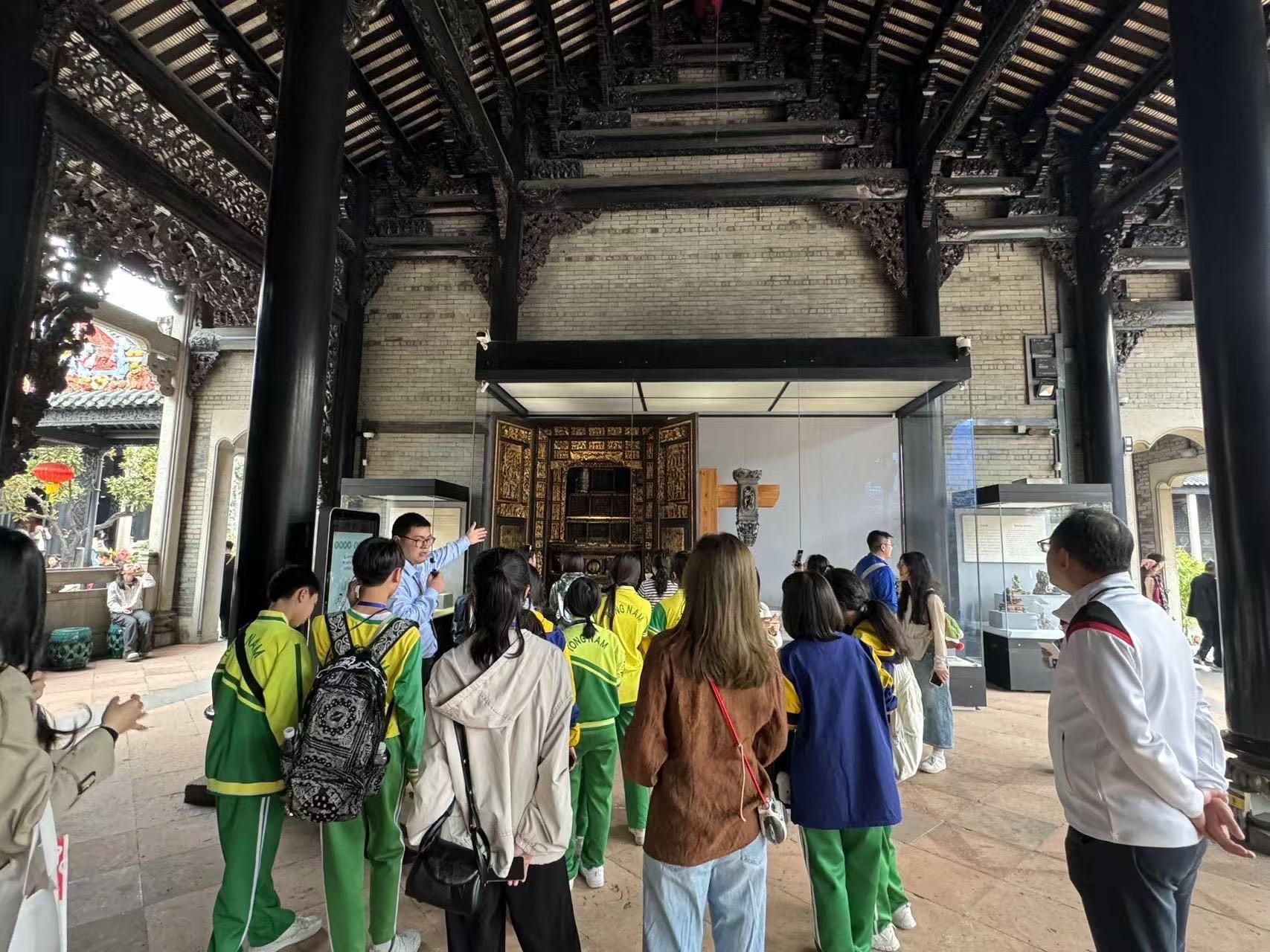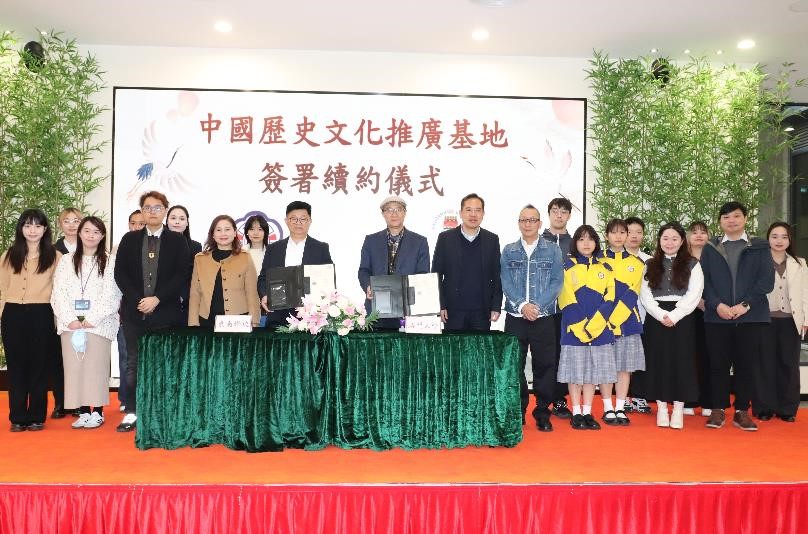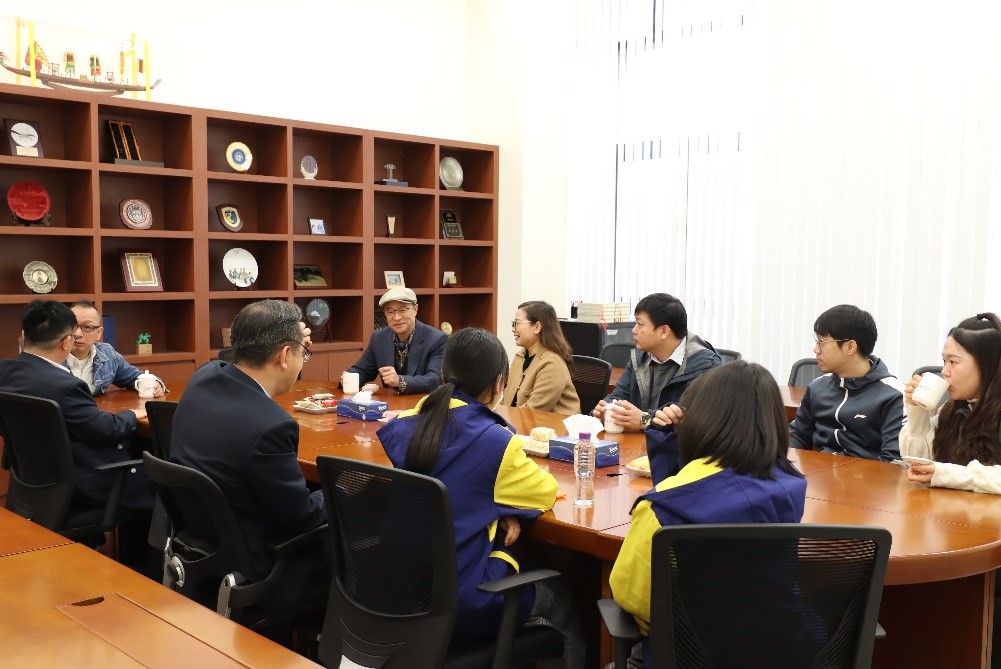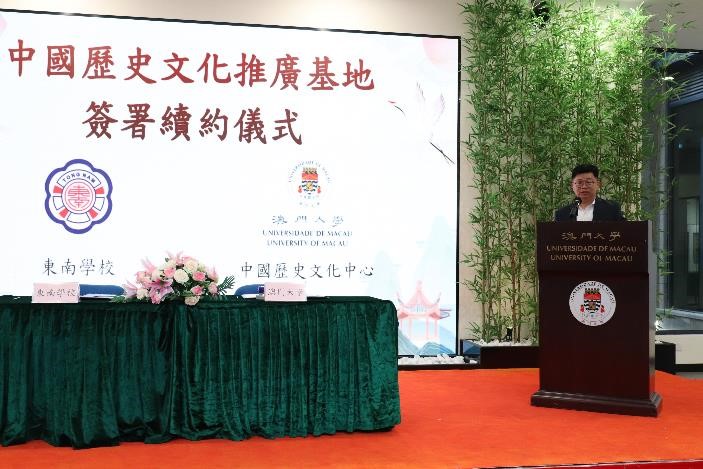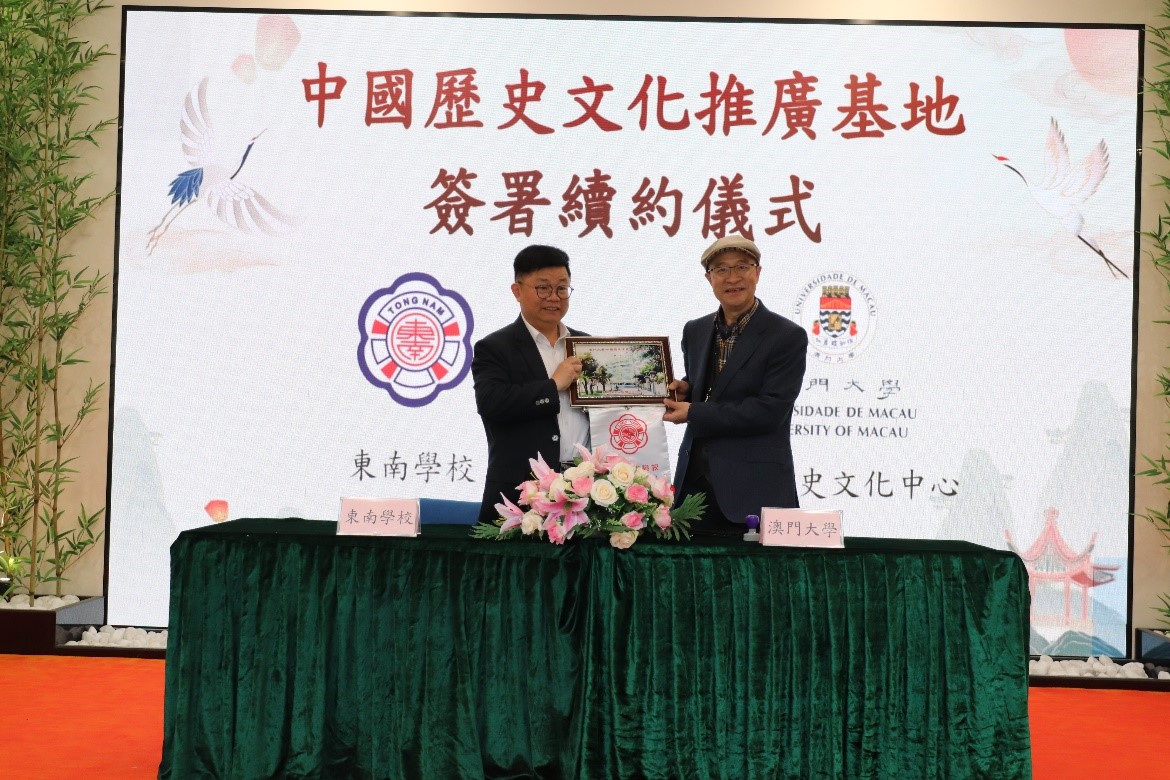In commemoration of history and in remembrance of our heroic martyrs, to inherit and promote the great spirit of the War of Resistance against Japanese Aggression and patriotism, on the occasion of the 80th anniversary of the victory of the Chinese People’s War of Resistance against Japanese Aggression and the World Anti-Fascist War, and the 26th anniversary of Macao’s return to the motherland, the “Retracing the Footsteps of the Dongjiang Column: Macao Education Leaders’ Visiting and Exchange Delegation” was held from April 12 to 14. The event was jointly organized by the General Association of Macau Guangzhou Associations, the San Mei Natives General Association of Macau, the Association of Hoi Luk Fung, the Association of Huizhou Macau, the Macao Chong San Association, and the Macau Education and Youth Development Bureau. The delegation visited four places in Guangdong Province—Zhongshan, Shantou, Huizhou, and Guangzhou—to revisit the history of the Dongjiang Column and deepen patriotic education. More than 40 leaders from the Macao education sector, including Prof. Zhang Yan, director of the Centre for Chinese History and Culture (CCHC) of the University of Macau(UM), participated in this meaningful visit and exchange activity.
On the morning of the 12th, the visiting and exchange delegation held a solemn inauguration ceremony in Zhongshan. Subsequently, the delegation visited the Gu Family Ancestral Hall, the Yang Yin’s Former Residence, and the Yang Yin Martyr Memorial Exhibition. At Yang Yin’s Former Residence, through precious cultural relics, vivid pictures, and detailed information, the delegation gained an in-depth understanding of Yang Yin’s life dedicated to the revolutionary cause and deeply felt his firm belief and selfless dedication.
In the afternoon of the 12th, the delegation moved from Zhongshan to Shantou. At TongLuoZhai Village and the former site of the CPC Hailufeng Central County Committee (Qinyuan), they paid homage to the red cultural relics and listened to heroic stories. Local guides vividly narrated the combat history and revolutionary deeds of the Dongjiang Column in the Shantou area, allowing the members of the delegation to feel as if they had traveled back in time to the war-torn era. They profoundly realized that this red land of Shantou has nurtured countless heroes who made significant contributions to the victory of the Chinese revolution.
On the morning of the 13th, the delegation continued their journey in Shantou, heading to Haifeng County to visit the Red Palace Memorial Museum. Haifeng is the birthplace of China’s first Soviet regime. Peng Pai, a pioneer of the Chinese peasant movement and one of the early important leaders of the Communist Party of China, was called the “King of Peasant Movement” by Mao Zedong. This was the revolutionary venue where Peng Pai and other Communists led the people of Hailufeng to establish the first Soviet regime. With a reverent heart, the delegation members delved into the history of the Chinese peasant movement and the revolutionary deeds of Martyr Peng Pai.
At noon on the 13th, the delegation moved from Shantou to Huizhou, visiting the former site of the Dongjiang Column Command Department and the Dongjiang Column Memorial Hall in Boluo County. At the former site of the Dongjiang Column Command Department, it seemed as if they could see the commanders of the Dongjiang Column planning and directing battles. The memorial hall, with its rich exhibits and detailed historical materials, comprehensively displayed the development process and brilliant achievements of the Dongjiang Column. Through the visit, the delegation members gained a deeper understanding of the history of the Dongjiang Column, further enhancing their national pride and sense of responsibility.
In the evening of the 13th, the delegation arrived in Guangzhou and held a sharing session at Taoranxuan on Ersha Island. The event invited Ms. Peng Yina, granddaughter of Martyr Peng Pai, to give a themed speech. She spoke on “Devoted to the Country’s Woes—The Patriotism and Family Tradition of Peng Pai,” recounting the touching story of how Peng Pai, despite his wealthy background, was deeply concerned about the country’s peril and the people’s suffering. He gave up his family fortune to join the revolution and sacrificed his life for the ideal of saving the country. She also shared the story of her family member, Academician Peng Shilu, who dedicated himself to China’s nuclear submarine industry. She called on the younger generation of Macao to remember their original aspirations and continue to contribute to the prosperity and development of Macao and the country.
This “Retracing the Footsteps of the Dongjiang Column: Macao Education Leaders’ Visiting and Exchange Delegation” activity was not only a red journey but also a heritage of spirit. Through on-site visits, listening to explanations, and sharing experiences, the delegation profoundly understood the connotation and value of the Dongjiang Column spirit, further strengthening the cultural exchange and emotional connection between Macao and the mainland. In the days to come, this red spirit will take root in the education sector of Macao. The CCHC of the UM will continue to promote the revolutionary spirit, inspiring more Macao youth to strive for the great rejuvenation of the Chinese nation and the realization of the Chinese Dream.
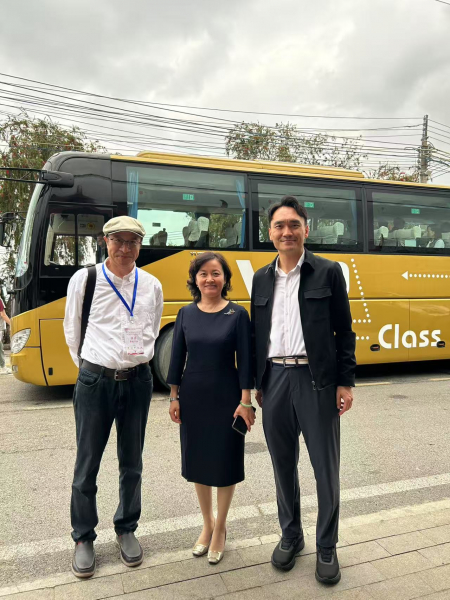
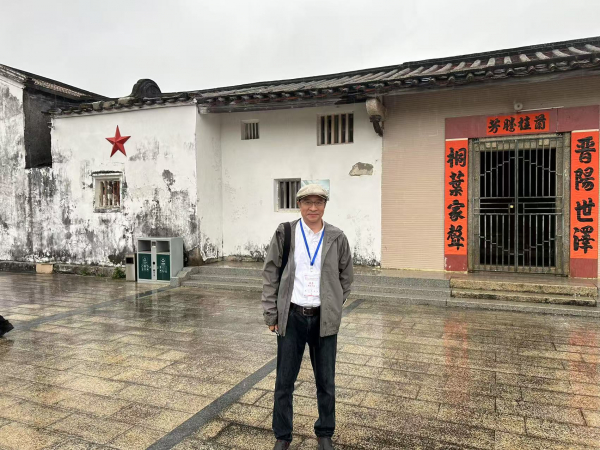
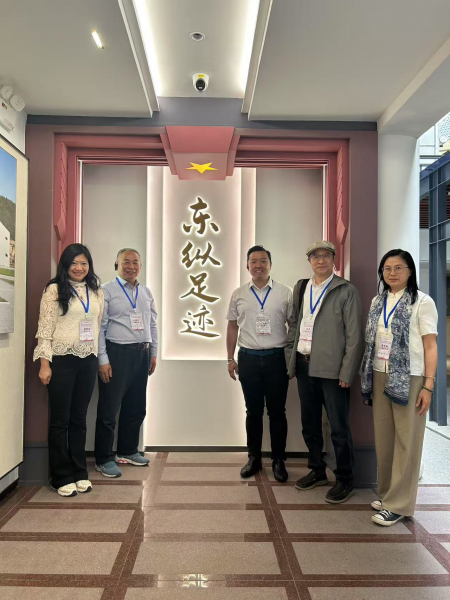
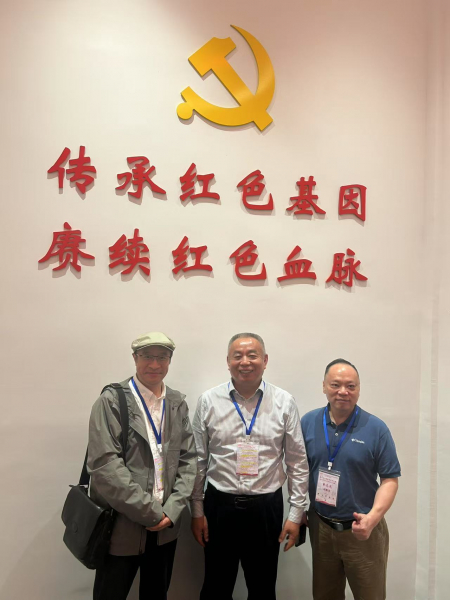
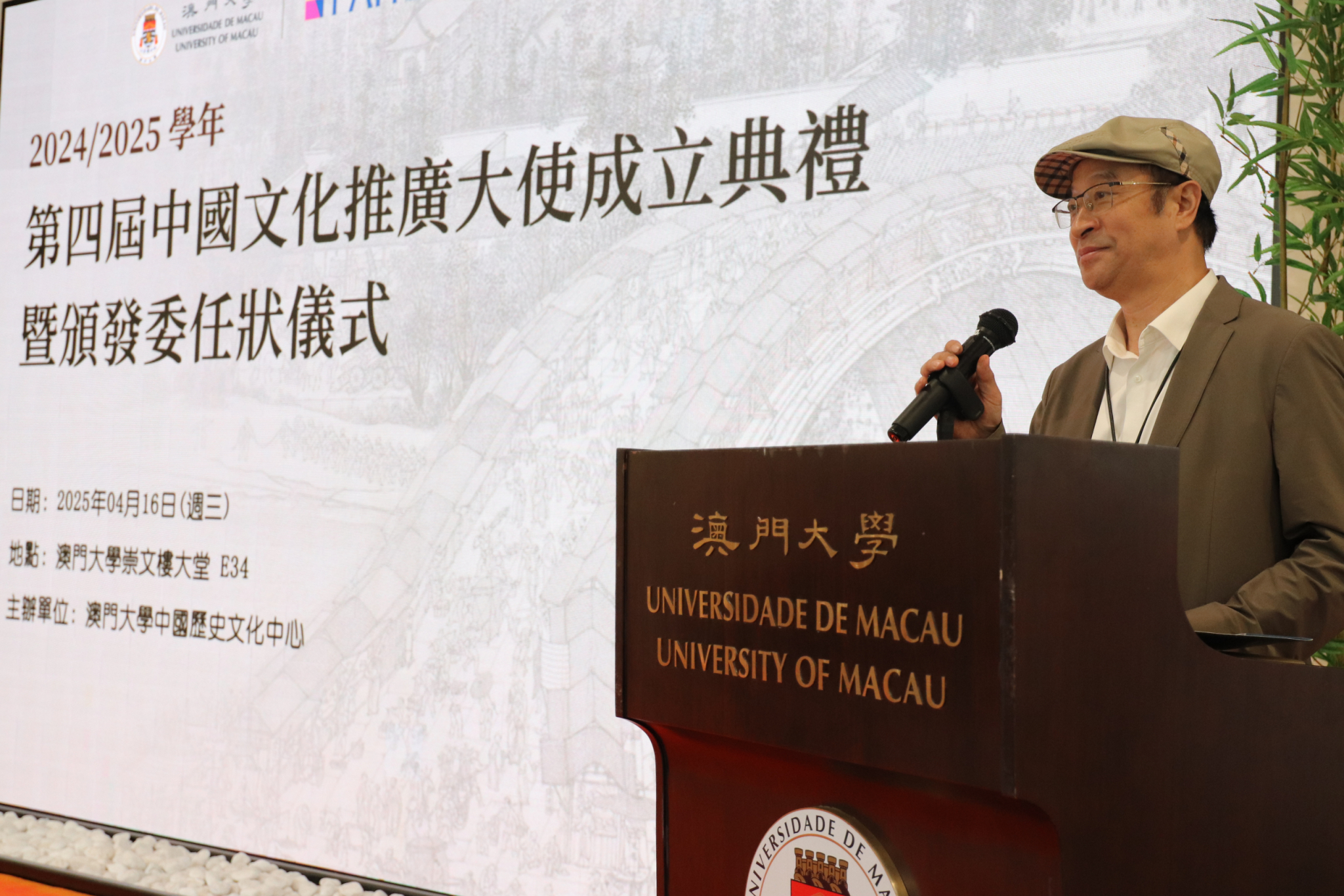
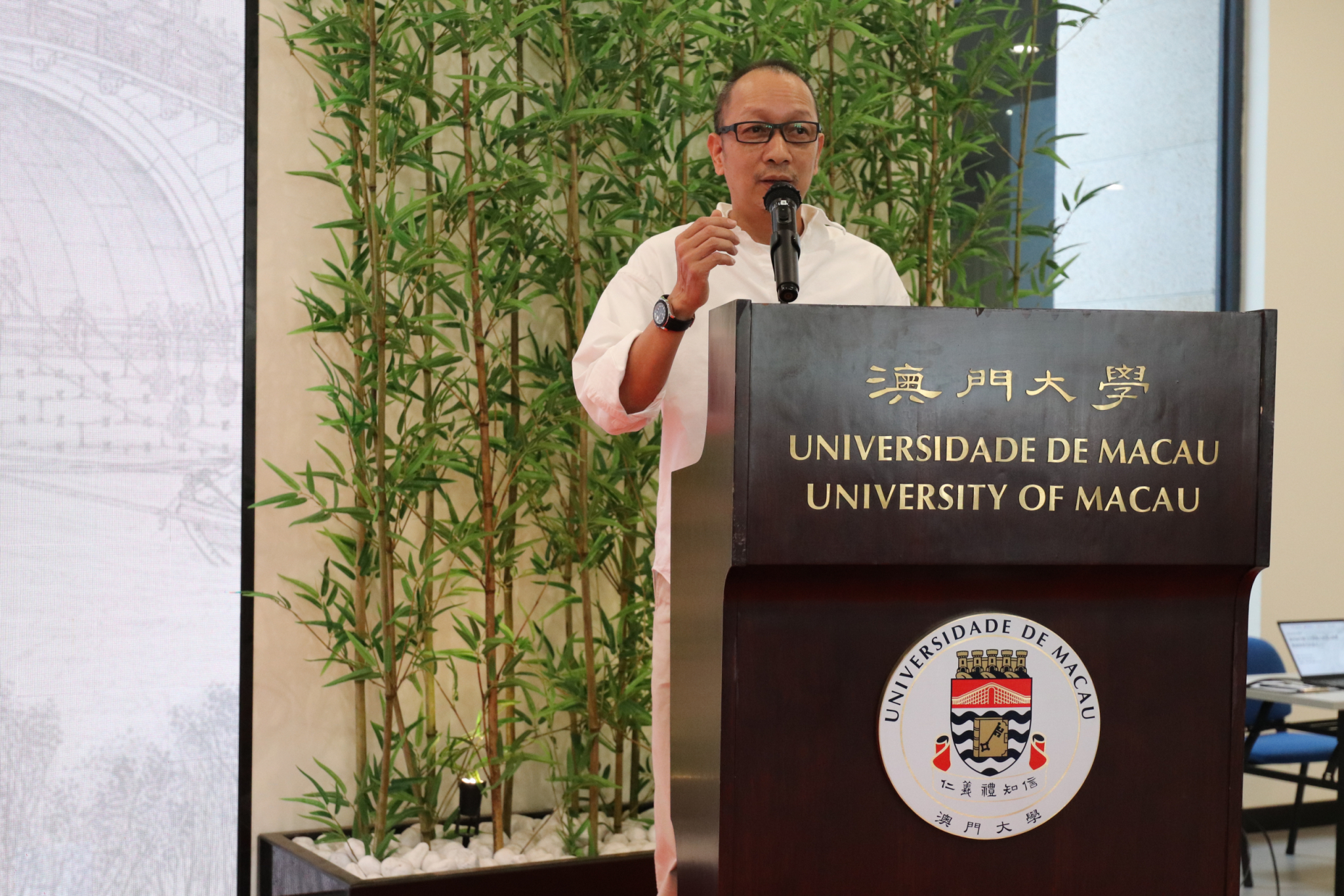
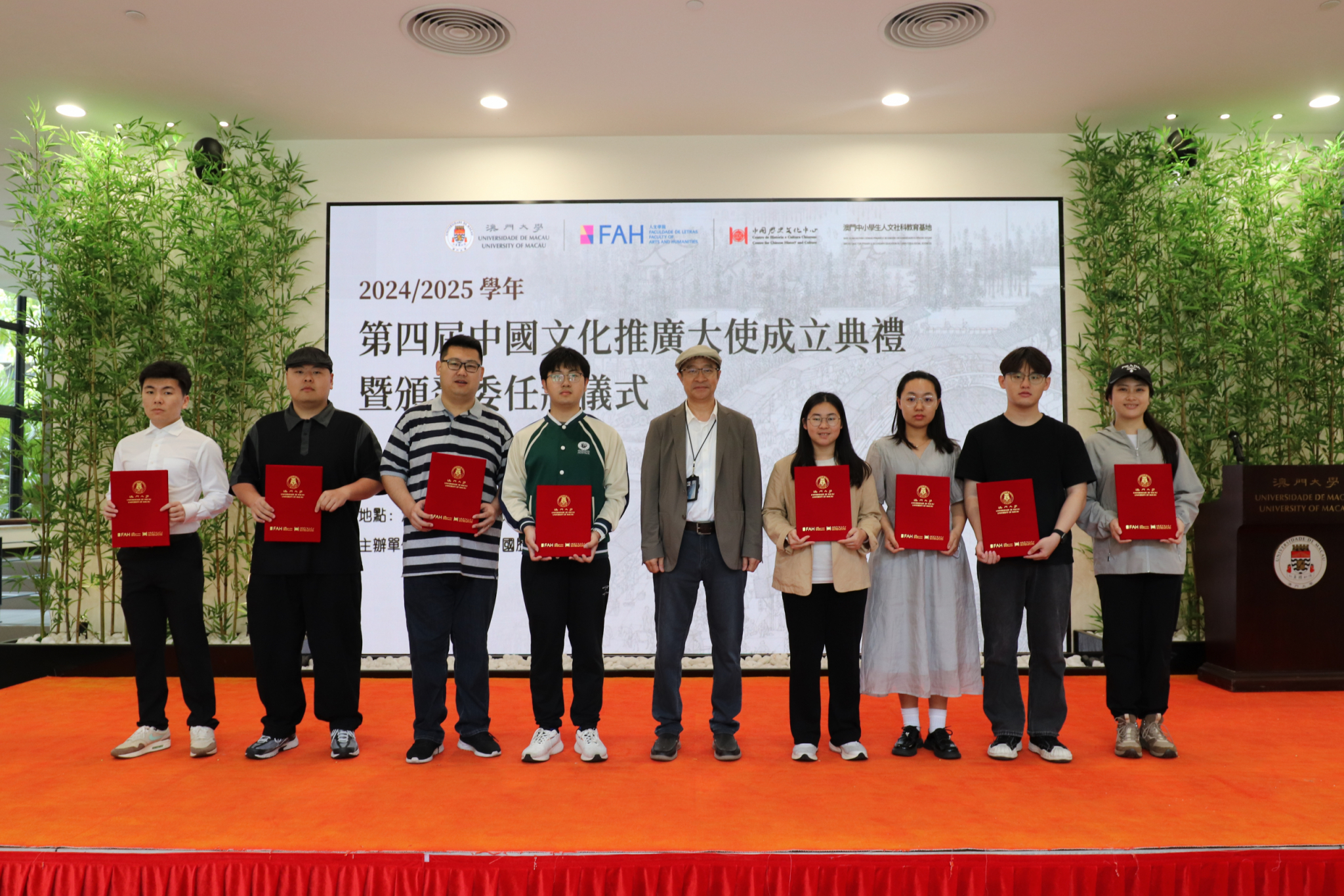

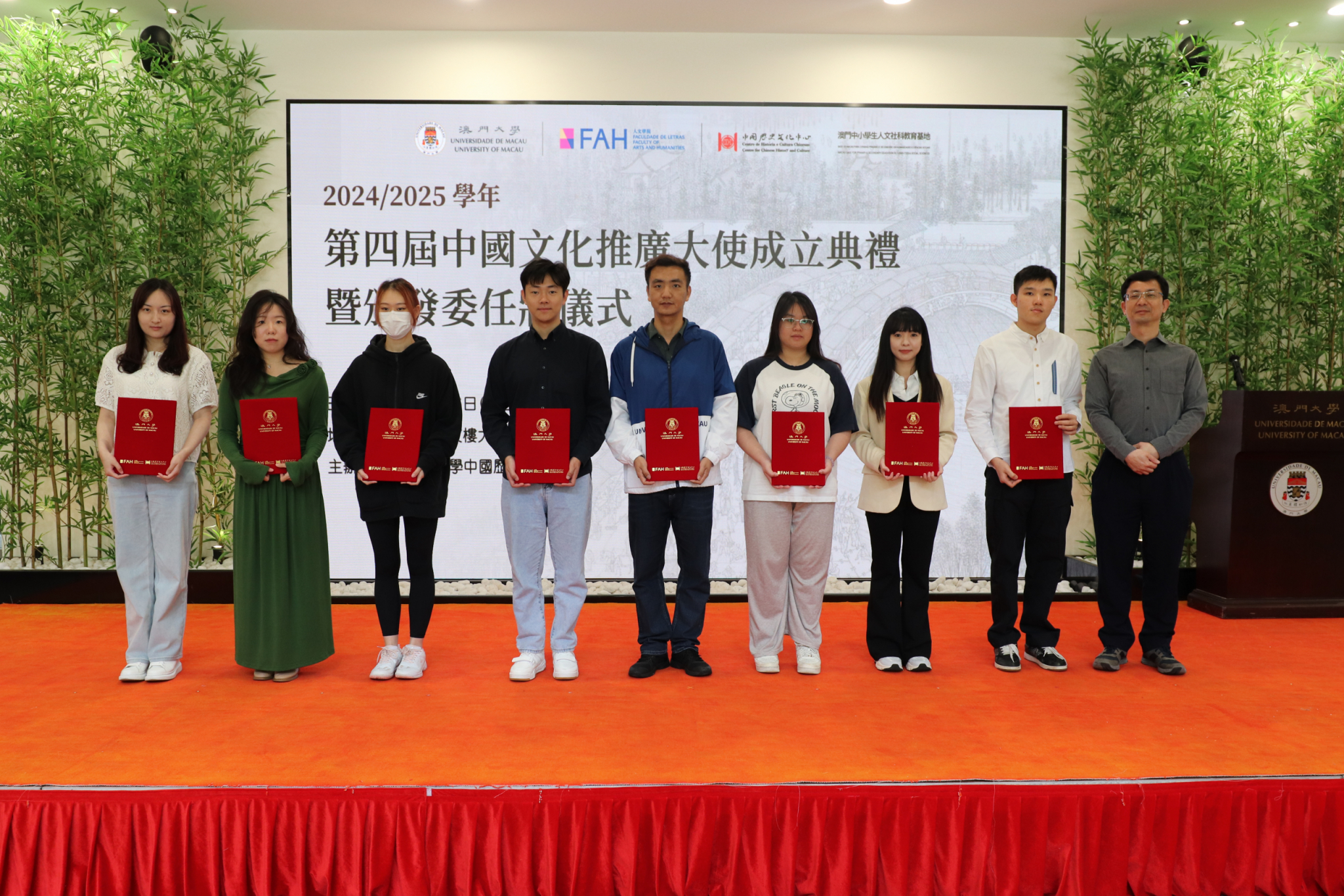
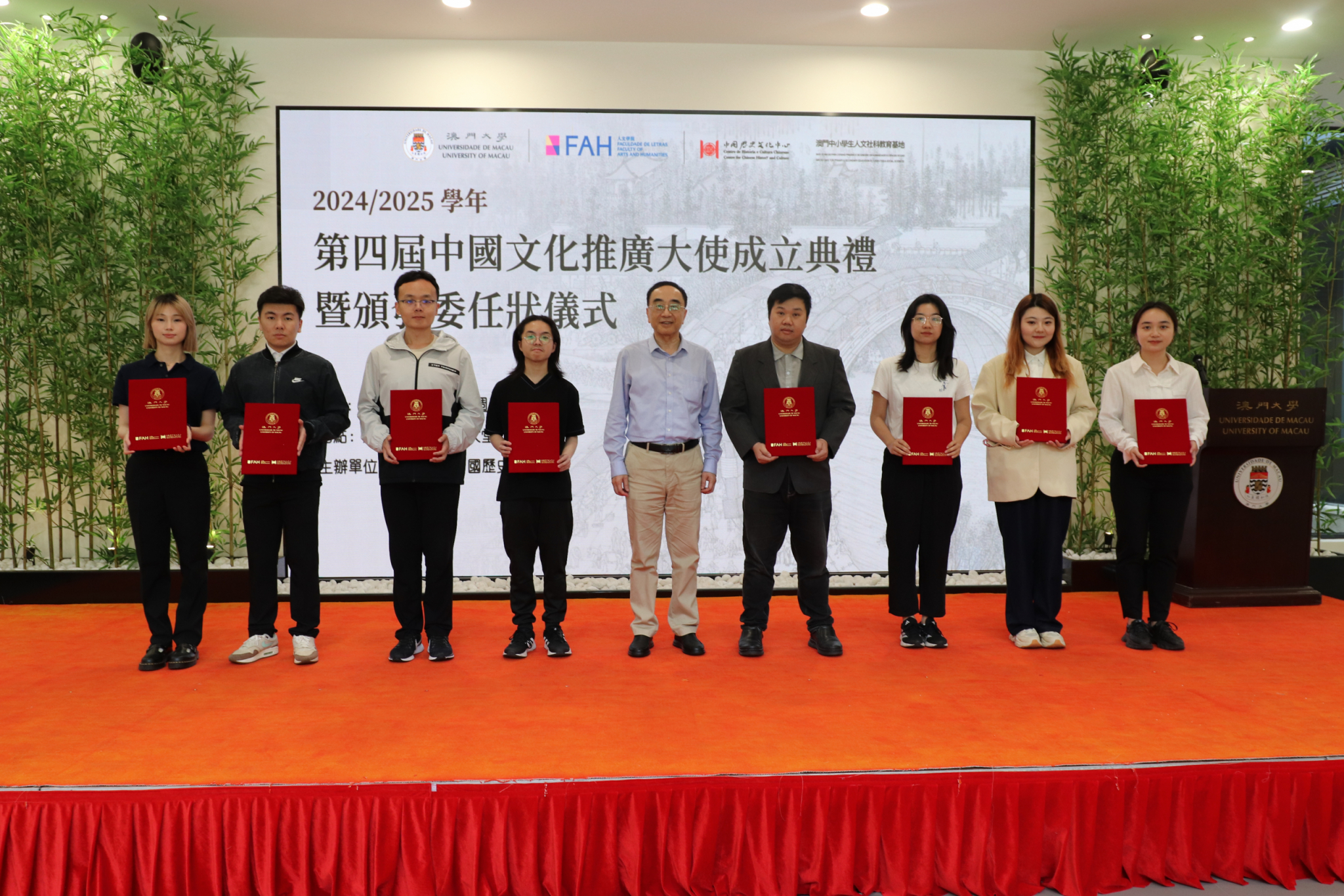
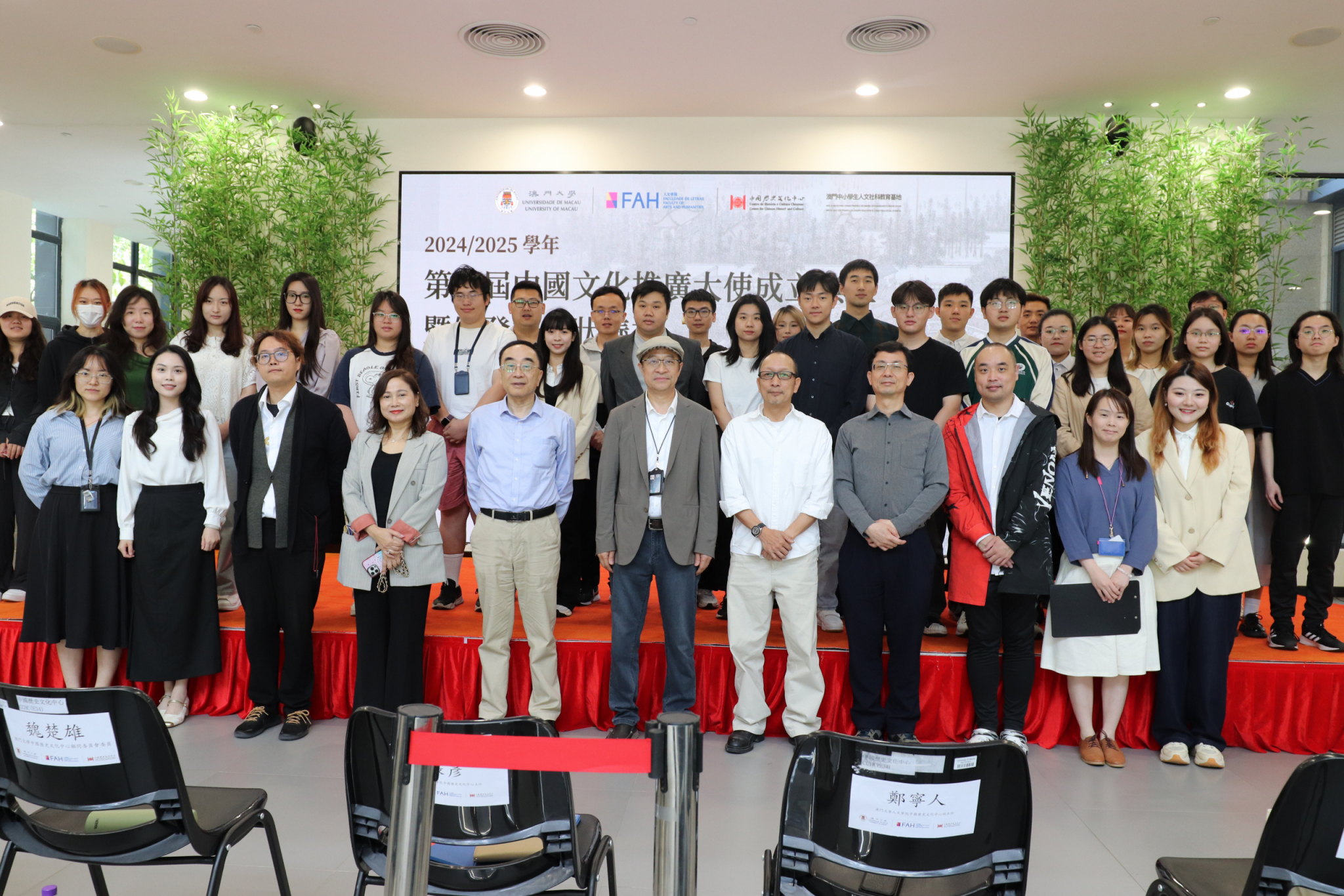


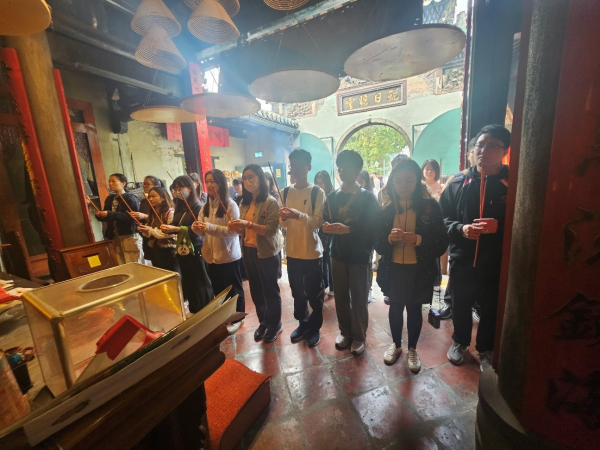
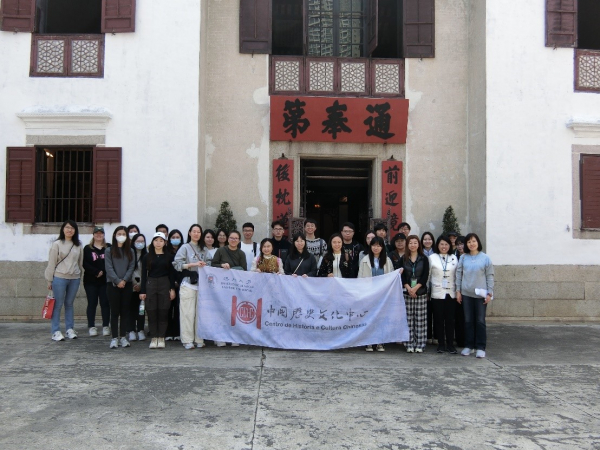
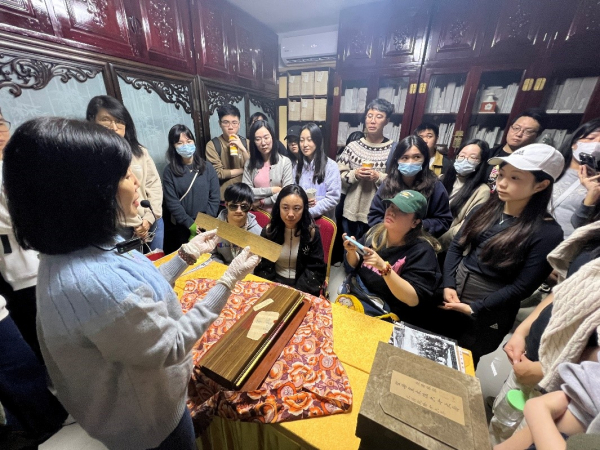
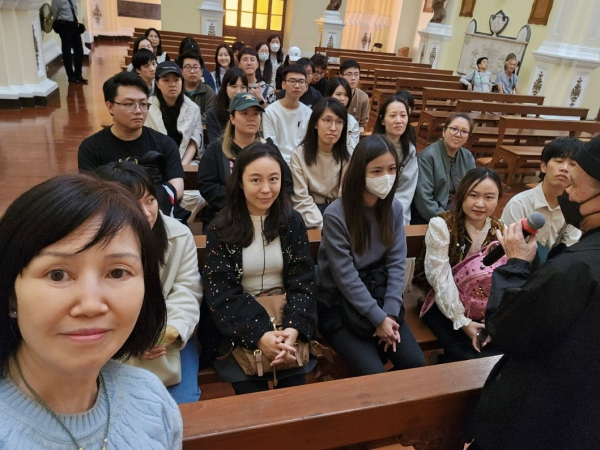
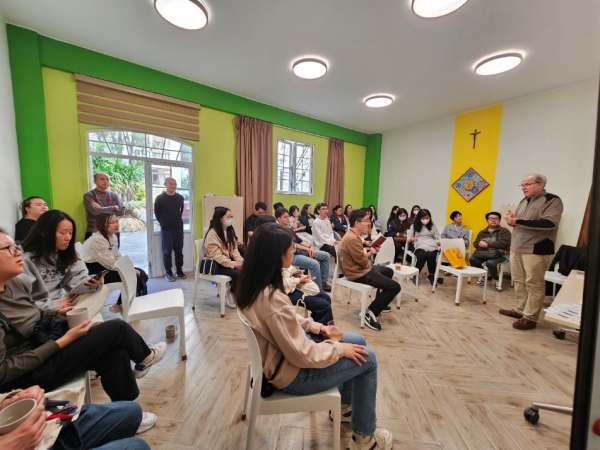
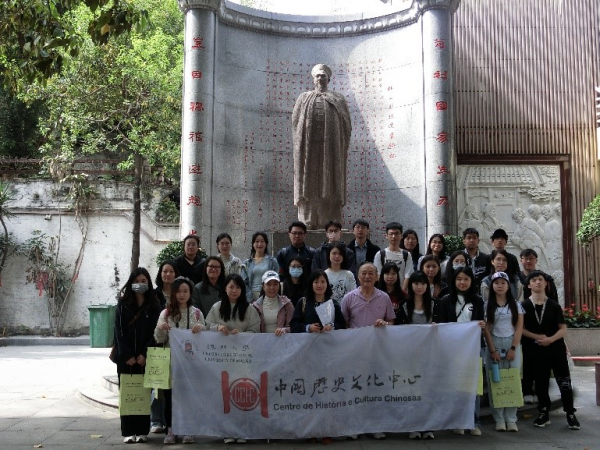
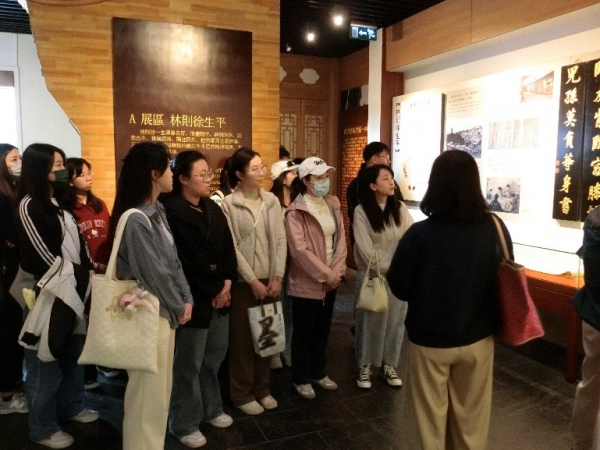 In the afternoon, representatives from Galaxy Entertainment Group introduced the company’s strategies for promoting cultural sustainability and arranged a visit to the Galaxy Art Collection exhibition. Finally, the students visited the Lai Chi Vun Shipyards to learn about the history and contemporary conservation significance of Macao’s traditional shipbuilding skills.
In the afternoon, representatives from Galaxy Entertainment Group introduced the company’s strategies for promoting cultural sustainability and arranged a visit to the Galaxy Art Collection exhibition. Finally, the students visited the Lai Chi Vun Shipyards to learn about the history and contemporary conservation significance of Macao’s traditional shipbuilding skills.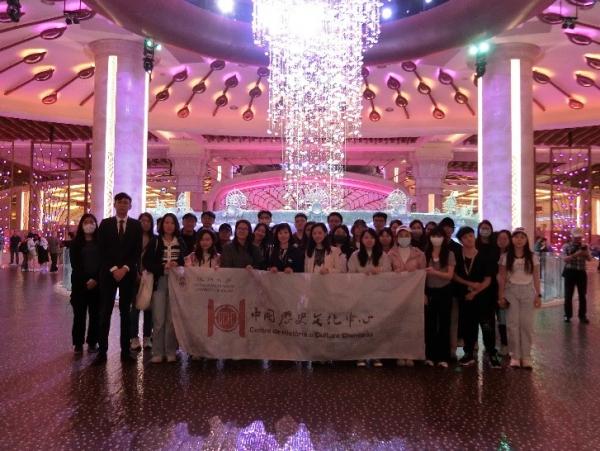
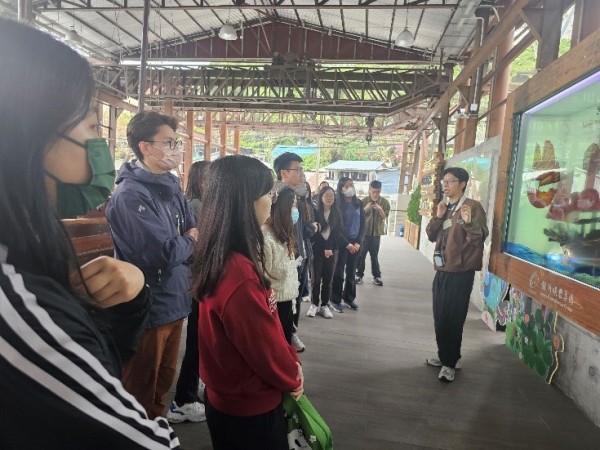 These two field trips broke through the boundaries of the classroom and provided practical examples for promoting historical and cultural education and the cultivation of patriotic spirit.
These two field trips broke through the boundaries of the classroom and provided practical examples for promoting historical and cultural education and the cultivation of patriotic spirit.
